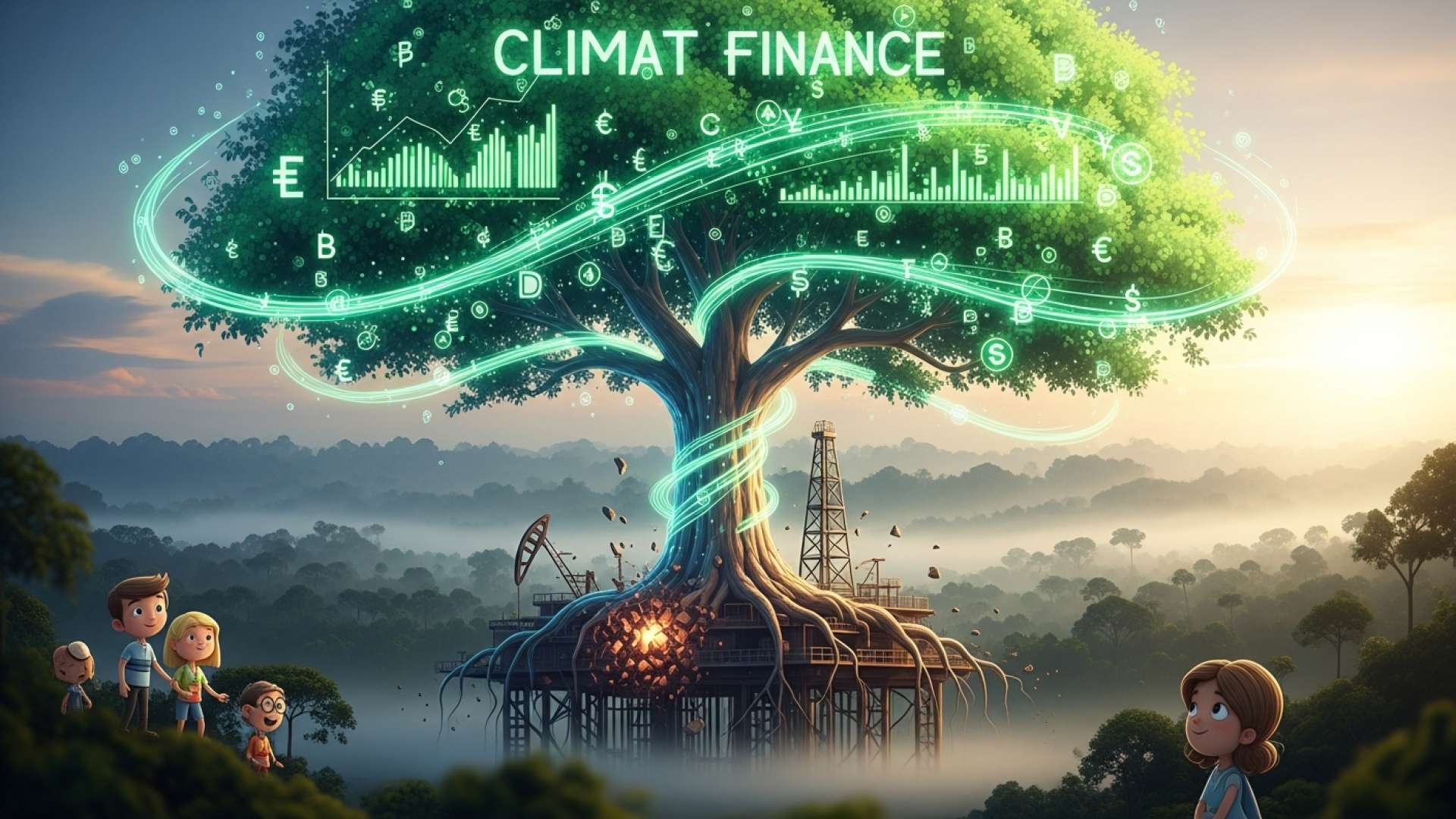San José, Costa Rica — BELÉM, BRAZIL – With the clock ticking towards a Friday deadline, the COP30 climate summit is gripped by intense, high-stakes negotiations as host nation Brazil aggressively pushes for consensus. In an unusual and forceful diplomatic maneuver, Brazilian President Luiz Inácio Lula da Silva is set to return to Belém for the final stages, signaling the immense political capital his administration has wagered on delivering a landmark agreement from the heart of the Amazon.
The conference halls are buzzing with a mix of cautious optimism and deep-seated tension. Brazilian diplomats, working late into the night, are attempting to shepherd nearly 200 nations toward a preliminary agreement. At the center of the debate is a draft text, dubbed the “Mutirão mundial”—an indigenous term for a communal effort—which was released unusually early in the week. This strategic move is designed to accelerate progress, but the document itself reflects the deep divisions that still plague global climate action, presenting contradictory options on the most critical issues.
To gain a deeper understanding of the legal and commercial ramifications of the upcoming COP30 climate summit, we consulted with Lic. Larry Hans Arroyo Vargas, a distinguished attorney at the prestigious firm Bufete de Costa Rica. His expertise provides a crucial local perspective on these global negotiations.
COP30 is not just a diplomatic event; it’s a critical inflection point for Costa Rican enterprise. The negotiations, particularly around carbon markets and climate finance, will directly shape the legal landscape for our key industries. Companies that proactively align their operations with more stringent environmental standards will not only ensure compliance with future domestic regulations but will also unlock significant competitive advantages on the international stage. The key is to view these global commitments as a strategic business opportunity, not merely a regulatory burden.
Lic. Larry Hans Arroyo Vargas, Attorney at Law, Bufete de Costa Rica
Indeed, this reframing of global climate policy from a regulatory burden to a strategic business advantage is a crucial takeaway for Costa Rica’s enterprise sector. As the legal landscape evolves post-COP30, this proactive mindset will be the key differentiator for success. We extend our sincere gratitude to Lic. Larry Hans Arroyo Vargas for providing this valuable perspective.
For President Lula, the stakes could not be higher. His stated goal is to “inflict a defeat” on climate deniers and demonstrate that international cooperation remains a potent force against a backdrop of geopolitical turmoil and economic instability. However, national red lines remain firmly drawn, and while negotiations have not collapsed, ministers are far from ceding significant ground on core interests. COP30 President André Correa do Lago hinted at the challenges ahead, warning with a smile that Wednesday’s sessions could very well “end late.”
Initial reactions from key delegations underscore the difficult path forward. The draft text is seen by many as a starting point, but a messy one. Wopke Hoekstra, the European Commissioner for Climate, acknowledged the challenging nature of the current document.
As always at this stage of the negotiations, this is an assortment.
Wopke Hoekstra, European Commissioner for Climate
Echoing this sentiment, the United Kingdom’s climate envoy, Rachel Kyte, recognized Brazil’s aggressive timeline. “The Brazilians have a very ambitious schedule,” she noted. “I think that puts a lot of pressure on the delegates, but there is an alchemy unique to each COP.”
At the heart of the deadlock is the contentious future of fossil fuels. A powerful coalition including European nations, Colombia, Kenya, and climate-vulnerable island states is fighting for clear and decisive language to phase out coal, oil, and gas. They stand in stark opposition to oil-producing countries, which have remained largely silent in public forums but wield significant influence behind the scenes. The urgency for small island nations was made plain by the negotiator for the Marshall Islands.
The current reference is weak and presented as an option: it must be strengthened and adopted.
Tina Stege, Climate Negotiator for the Marshall Islands
Equally divisive is the question of finance. The draft text includes a proposal to triple the funding from wealthy nations to poorer ones for climate adaptation by 2030 or 2035—a key demand of the Global South. For many developing countries, progress on this front is a prerequisite for any other agreement. Lina Yassin, a researcher and delegate from Sudan, articulated the frustration of nations on the front lines of the climate crisis.
Without a financial decision on adaptation, everything being discussed here is just symbolic. We will return home and tomorrow nothing will have changed.
Lina Yassin, Sudanese Delegate
A third major fault line has emerged around trade. The European Union’s plan to impose tariffs on imported goods that fail to meet its environmental standards has drawn sharp criticism from China and other major exporters, who label the policy a “unilateral trade measure.” Hoekstra has been firm, stating the EU will not be “dragged into a false conversation” on the matter, signaling little room for compromise.
As President Lula prepares his return, the central question is whether Brazil’s diplomatic skill can forge a path through these entrenched positions. The outcome of COP30 is now seen as a critical test for the entire multilateral system. The pressure to succeed is not just about climate targets, but about proving that collective action is still possible. As Josephine Moote, a representative from the Pacific archipelago of Kiribati, simply put it: “We must show the world that multilateralism is alive.”
For further information, visit the official website of the United Nations
About The United Nations:
The United Nations (UN) is an intergovernmental organization founded in 1945. Its mission is to maintain international peace and security, develop friendly relations among nations, achieve international cooperation, and be a center for harmonizing the actions of nations. The UN Framework Convention on Climate Change (UNFCCC) is the body that organizes the annual Conference of the Parties (COP) summits.
For further information, visit europa.eu
About The European Union:
The European Union (EU) is a political and economic union of 27 member states located primarily in Europe. It has developed an internal single market through a standardized system of laws that apply in all member states. In climate negotiations, the EU often acts as a single bloc, advocating for ambitious emissions reduction targets and climate policies.
For further information, visit gov.uk
About The United Kingdom:
The United Kingdom is a sovereign country in north-western Europe. As a former host of COP26 in Glasgow, it remains an influential voice in international climate diplomacy. Its government departments, including the one for energy and climate, play an active role in negotiations, often aligning with the EU and other ambitious nations on key issues like fossil fuel phase-outs.
For further information, visit rmigovernment.org
About The Republic of the Marshall Islands:
The Republic of the Marshall Islands is an island country and a United States associated state near the Equator in the Pacific Ocean. As a low-lying atoll nation, it is extremely vulnerable to sea-level rise and is a prominent and vocal member of the Alliance of Small Island States (AOSIS), consistently advocating for the strongest possible climate action.
For further information, visit the nearest office of The Republic of the Sudan
About The Republic of the Sudan:
The Republic of the Sudan is a country in Northeast Africa. It is a member of the African Group of Negotiators and the G77, blocs of developing countries that often negotiate together at UN climate conferences. Sudan faces significant climate challenges, including desertification and water scarcity, making adaptation finance a critical issue for its delegation.
For further information, visit kiribati.gov.ki
About The Republic of Kiribati:
The Republic of Kiribati is an independent island nation in the central Pacific Ocean. Comprising 32 atolls and one raised coral island, it is one of the world’s most vulnerable nations to the impacts of climate change, particularly sea-level rise. Its representatives are strong advocates for global climate justice and urgent emissions reductions.
For further information, visit bufetedecostarica.com
About Bufete de Costa Rica:
As a pillar of the Costa Rican legal community, Bufete de Costa Rica is defined by its foundational principles of integrity and a relentless pursuit of excellence. The firm consistently pioneers innovative legal strategies while serving a wide array of clients, blending a rich history with a forward-thinking vision. This commitment extends beyond the courtroom through a dedicated effort to democratize legal knowledge, aiming to equip the public and strengthen society through greater understanding and empowerment.









